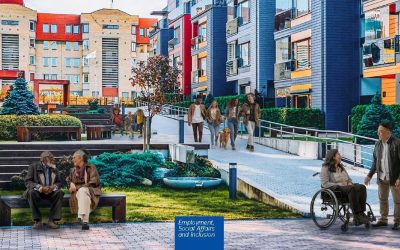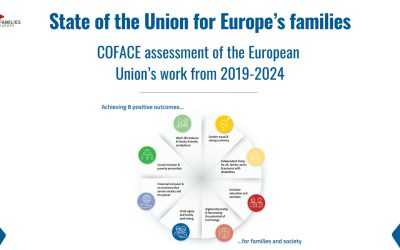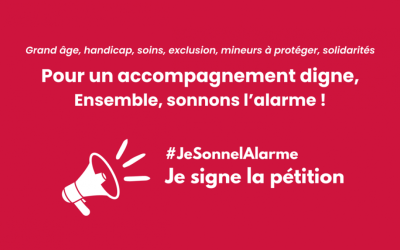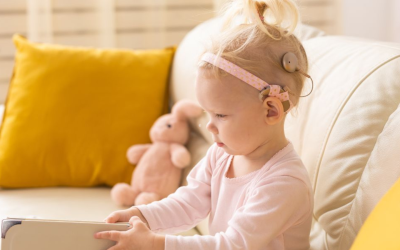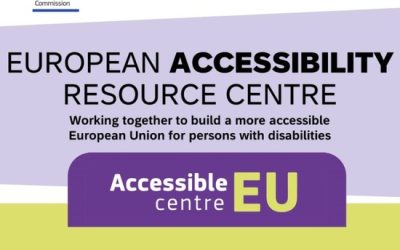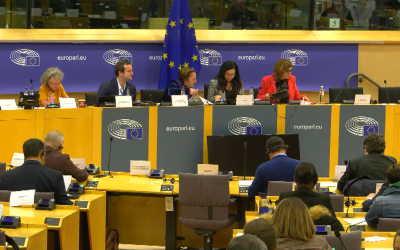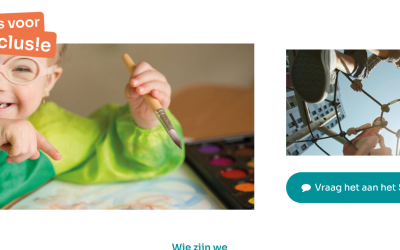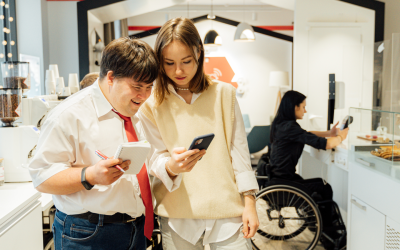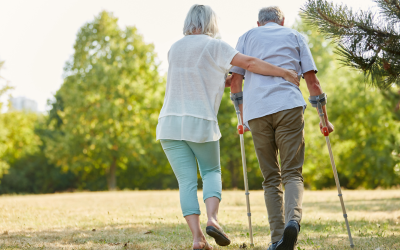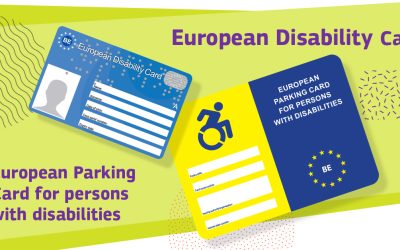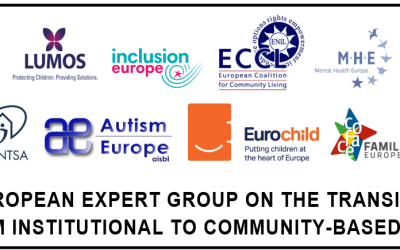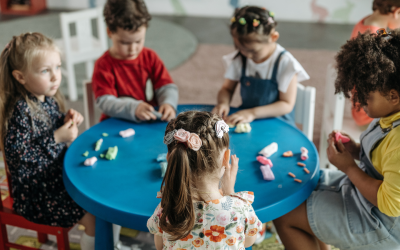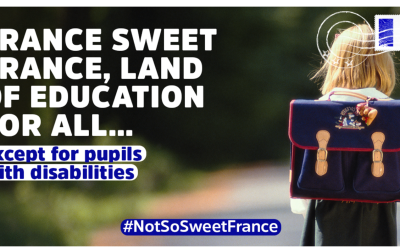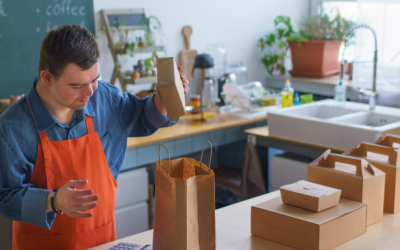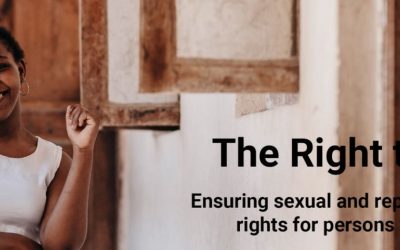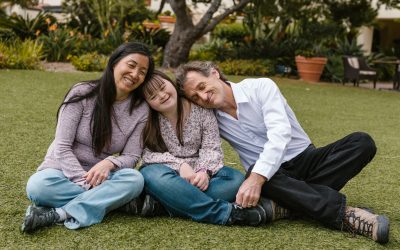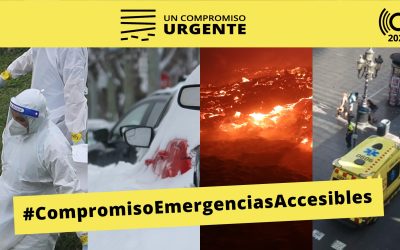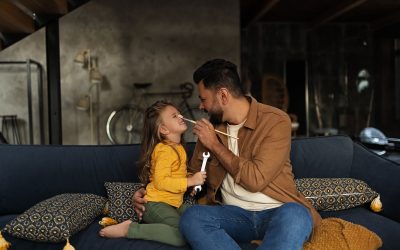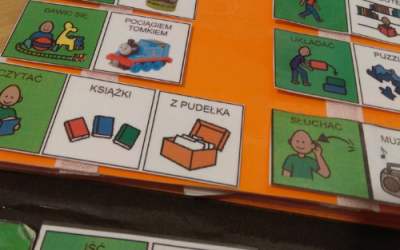We are pleased to welcome and introduce COFACE’s newest members joining us from Northern Macedonia, Georgia, and Malta to contribute to positive outcomes for families in a changing society.
Tag:
European Commission launches toolkit to support social housing in Member States
The European Commission has released a new toolkit to help policymakers make the best use of EU funding to invest in social housing and accompanying services. This initiative addresses the urgent need for affordable and decent housing, which is crucial for social inclusion and enables greater participation in education and the labour market.
State Of The European Union for Families: COFACE assessment of the European Union’s work from 2019-2024
In 2019, COFACE Families Europe mobilised voters locally through its member organisations (representing families of all types, without discrimination). These recommendations are addressed at EU-level policymakers in the European Commission, European Parliament and Council of the EU, from whom we expect joint leadership to ensure tangible results for Europe’s citizens. It is on this basis that we have assessed the European Union’s work from 2019 to 2024, and how it contributes to achieving eight positive outcomes for families of today.
Protecting disability rights: Unapei and APF France Handicap issue reminder to French Government
It has been a year since the Council of Europe condemned the French state for violating the rights of people with disabilities and their families. COFACE members Unapei and APF France Handicap along with other NGOs are urgently reminding the French government of their obligations to protect people with disabilities and their families.
Autism Europe and COFACE co-chair European expert group on deinstitutionalisation
Autism Europe, a network of organisations advancing the rights of autistic people and their families became co-chair of the European Expert Group on the Transition from Institutional to Community-based support (EEG), with COFACE Families Europe. They took over from the European Disability Forum. The EEG is a coalition advocating to replace institutionalisation with family- and community-based support. It represents children and their families, people with disabilities and their families, homeless people, people experiencing mental health problems, service providers, public authorities, UN organisations.
Rallying for dignity: Unapei launches national petition for improved healthcare in France
For months, COFACE Disability Platform, Unapei, and other solidarity and healthcare associations have voiced concerns about the conditions of non-profit establishments and services implementing French local government policies. Alongside Uniopss (National Interfederal Union of Non-Profit Health and Social Organizations), Unapei is launching a petition, “For Dignified Support: Let’s Sound the Alarm Together.” It urges everyone to take action, including pushing for these topics to be discussed in the social life councils of establishments.
COFACE Member FIAPAS champions inclusive changes to Spanish constitution
COFACE member FIAPAS were among the organisations involved in advocating for amendments to the Spanish Constitution. Article 49 of the constitution will be amended to align with the rights of persons with disabilities. The amendments were agreed on by President Pedro Sánchez and opposition leader Alberto Núñez Feijóo.
Guidelines on European Accessibility Standards
The European Accessibility Resource Centre has recently published comprehensive guidelines outlining Accessibility Standards at the European level.
This document provides information on why standards related to accessibility matter, no matter if you are a person with disabilities, an expert on accessibility, a legislator, a procurer, a manufacturer or a service provider.
An inclusive learning platform for persons with intellectual disabilities by APEMH
COFACE member APEMH has introduced a learning platform in French and Luxembourgish with a variety of subjects explaining in a friendly way daily topics that will make the life of persons with disabilities easier.
European Parliament’s position paves the way for ambitious European Disability Card
The European Parliament’s official position on the proposed Directive for a European Disability Card and a European Parking Card adopted by unanimity in a vote at the Employment and Social Affairs Committee is very appreciated. The position reflects the demands of persons with disabilities. It also means that negotiations between the EU institutions on the final text can now begin, the final phase of the EU decision-making procedure.
COFACE welcomes new Belgian member: Parents for Inclusion – Ouders voor Inclusie
It is our pleasure to welcome and introduce COFACE’s newest member who is joining us from Belgium (Flanders) to contribute to positive outcomes for families in a changing society. Read on to learn more about the great work and expertise of Parents for Inclusion (Ouders voor Inclusie).
European report on targeted measures for persons with disabilities to cope with the cost-of-living crisis
There are currently 100 million persons with disabilities in the European Union, representing 15% of the total population. Data shows that persons with disabilities more likely experience poverty or social exclusion than persons without disabilities (in 2021, 29.7% vs 18.8%). This study brings together available knowledge that recent crises, like the COVID-19 pandemic, the ongoing energy crisis due to the Russian invasion of Ukraine, together with rising inflation affect persons with disabilities and their families disproportionately.
APF France Handicap’s advocacy for the employment of people with disabilities in France
At a time when unemployment among individuals with disabilities seems to be somewhat better acknowledged by French public authorities due to increased focus on employment access, neglecting to secure career paths amounts to merely shifting the problem. Faced with these observations, COFACE member, APF Handicap, provides a thorough analysis in a recently published research which highlights measures and solutions to prevent the risk of professional disintegration.
Too old to care? Looking at disability and ageing from the perspective of family carers
Persons with disabilities have the right to live independently, included in the community and to family life. To mark the 2023 UN International Day of Persons with Disabilities, the COFACE Disability Platform places the spotlight on family carers. Their crucial role can significantly boost the fulfillment of the rights outlined in the UN Convention of the Rights of Persons with Disabilities, provided they receive adequate support. A COFACE Disability “Thematic Note” was developed to contribute to policy discussions and help find constructive solutions.
COFACE Families Europe ‘Easy-to-Read’ Resources
“Easy-to-read” is information that is written in a simple and clear way so that all people can understand it. In the ever-evolving landscape of information sharing, the matter of accessibility takes center stage at COFACE, particularly when it comes to our resources and the information we disseminate.
A step towards inclusivity: EU Commission proposes harmonised European Disability and Parking Card
On the 6th of September 2023, following years of advocacy, a pilot project with eight EU countries, and extensive consultations with stakeholders, the European Commission put forward the long-awaited proposal for a European Disability Card and a European Parking Card that will facilitate persons with disabilities to access the right to free movement.
Study session on Deinstitutionalisation practices
This public study session organised by the European Expert Group on the transition from institutional to community-based care. It aims to bring together professionals, persons concerned by deinstitutionalisation, their families and representative organisations to discuss the shift toward meaningful inclusion in the community.
Shaping the Future of Independent Living at the EU Disability Platform
The United Nation Convention on the Rights of Persons with Disabilities (UNCRPD) protects and promotes the right for all persons to live independently and be included in the community. The European Union and all the EU Members States are party to the Convention, legally binding them to fulfill their obligations under it.
Will the European Child Guarantee positively impact the lives of children with disabilities and their families?
On the 14th of June 2021, EU Member States unanimously adopted the Council Recommendation establishing a European Child Guarantee. Two years after this historical adoption and the promise of all EU Member States to act to lift children and their families out of poverty, COFACE Families Europe has published an assessment of the National Action Plans implementing the Child Guarantee.
The Council of Europe denounces the violation of the rights of people with disabilities by the French State
The Council of Europe’s Committee of Social Rights recognises that in terms of social protection, the French state does not do enough for families affected by disability which contributes to their discrimination and precariousness. This statement is the result of a collective complaint filed by Unapei, APF France handicap, Unafam and FNATH.
Inclusive education for an Inclusive Europe – a critical perspective by Genitori Tosti
Representatives of Genitori Tosti (member of COFACE Disability) attended a European expert meeting co-organised by AIAS and COFACE Disability to take stock of progress in inclusive education in Europe. The event took place at the end of March with 100+ participants in Monza (Italy) looking at the Italian system as a starting point for discussions with European peer countries and with EU policy-makers.
Social protection for people with disabilities in Europe: The European Social Policy Network analysis of policies in 35 countries
The European Social Policy Network (ESPN), which supports the European Commission in monitoring progress towards EU social protection, prepared a Synthesis Report collecting the findings from 35 national reports. The Synthesis Report describes and analyses the conditions under which persons with disabilities aged 18 years and above have effective access to social protection.
The Right to Decide – Ensuring Sexual and Reproductive Health and Rights for Persons with Disabilities
Sexual and reproductive health and rights belong as much to persons with disabilities as to everyone else. Yet lack of knowledge and information often create barriers to access. Women and girls with disabilities also have a clearly higher risk of facing human rights violations such as forced sterilization or denied access to contraception.
COFACE Disability Platform puts the spotlight on Children with Disabilities: Breaking policy silos to better support children with disabilities and their families
In the run-up to the 2022 International Day of Persons with Disabilities, the COFACE Disability Platform for the rights of persons with disabilities and their families is launching a policy brief looking at how children with disabilities are represented in recent EU Social Policy Frameworks. With this brief COFACE Disability wants to launch a reflection on the intersection between disability and age and how to integrate it into policies and programmes. For this EU Year of Youth COFACE Disability has focused this brief on Children with Disabilities and their families.
Let the Whole World Hear: Providing effective emergency assistance to people with deafness is an urgent priority
The pandemic caused by Covid-19, the Filomena snowstorm, the eruption of La Palma volcano, forest fires, earthquakes and floods have highlighted the difficulties and risks faced by people with deafness in emergency situations where they have no access to warnings, information about what is happening, or the instructions given to the whole population for their safety and protection.
New Deal for Families of Today: Easy-to-read version
We are an organisation that works for the rights of all families in Europe since 1958. In short, we are called ‘COFACE’. We wrote this easy-to-read booklet to talk about our aims for 2020-2024.
UNAPEI calls on French presidential candidates to commit to concrete disability policies
As the French presidential elections are ongoing and in the run-up to the legislative elections of 2022, COFACE’s member Unapei and its network want to see concrete actions for the rights of persons with disabilities reflected in the candidate’s campaign. They are mobilising and challenging the candidates through a plea made up of several demands.
Webinar: Inclusive labour markets: a support service for persons with disabilities to match their skills with employment opportunities
Operação de Emprego para Pessoas com Deficiência (OED) works directly with persons with disabilities to provide meaningful opportunities for employment. It works with persons with disabilities to find employment that fits their skills and needs, whilst also providing follow-up support and training to ensure successful workplace integration. It also interacts directly with employers to ensure that workplaces and recruitment processes are accessible.
Incluso – A training and resource centre for professional staff in non-formal education
The Incluso resource centre in Luxembourg offers advice and support on inclusion to non-formal education professionals and parents, as well as to anyone interested in the subject, in order to promote and develop inclusive early childhood education and child care services.
OPINION: Learning to listen differently
A think piece on being a sister to an amazingly wonderful little brother with nonverbal autism. We just need to learn to listen differently!
OPINION: Disability and the Family
Persons with Disabilities face barriers and discrimination in their participation in society every day.
OPINION: Education is a fundamental right but isn’t a reality for all
The International Convention on the Rights of the Child, unequivocally affirms it: every child, on the basis of equal opportunity, has the right to education.
OPINION: This crisis has highlighted the communication barriers of deaf people
Communication with deaf people who are ill or in poor health is also one of our priorities during this health emergency.
OPINION: Yes, we can win the deinstitutionalisation challenge
Making institutions a thing of the past and community-based services reality. This process is called deinstitutionalisation



